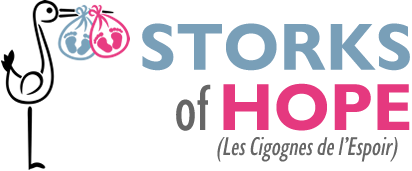How to become an egg donor? Regulations and treatment steps

Despite their desire to become parents, many couples have great difficulty becoming pregnant. For some, the only option is egg donation. If you have already had children naturally, without IVF treatment, you may be able to help them by donating your eggs.
If you are aware of the problem of infertility, and if you want to bring a couple the joy of parenthood, a fundamental joy that will enable them to pass on their love beyond the biological, you ladies can become an egg donor.
Most countries don’t have enough egg donors (even though this IVF technique has been available for over 30 years!) and candidates for donation can wait several years before benefiting from a donation, unless they go abroad (a legal procedure). Your generosity can change this situation and make you a “happiness donor”.
What are the regulations for becoming an egg donor?
Laws and regulations differ from country to country. Here are some useful links:
- Australia - donate eggs,
- UK - egg and sperm donors; donors,
- India - egg donation,
- USA and other countries - egg donation laws; guidance for donation.
We also advise you to contact the health organisation of the country you live in.
General information
Donation is voluntary. In practical terms, this means:
- The donation is made freely and without pressure of any kind. The donor must be informed of the procedures and techniques involved (in particular the risks and constraints of ovarian stimulation and puncture).
- The donor must sign a consent form that can be withdrawn at any time up until the oocytes are used.
- If the donor has a partner, they must also sign a consent form.
Donation is free. In practical terms, this means:
- The law prohibits any payment in return for egg donation.
- Donors may receive compensation to cover expenses incurred as a result of the donation such as travel, accommodation and childcare. Sometimes you may have to pay there up front.
- Donation is also free of charge for the recipient couple. IVF with donor eggs can be covered by if the couple meet the criteria for egg donation in their country of origin.
Donations are completely anonymous. In practical terms, this means:
- Donors and recipient couples will never know each other's identities. Please note: even in the case of cross-relational donation, anonymity is guaranteed. Cross-relational donation involves ‘bringing’ a donor to the donation centre to reduce waiting times. This donor's eggs are then given to an unknown couple.
- The law clearly guarantees that no filiation can be established between the child resulting from the donation and the donor. This child is definitively the child of the couple receiving the donation.
- The law strictly limits the number of children born from an egg donation from the same donor in order to almost totally eliminate the risk of consanguinity for future generations.
- In the event of serious medical problems affecting the child born from the donation, the medical authorities will be able to access the donor's file for a period of 40 years, but this file will be anonymised, i.e. all information that could identify the donor will not be accessible.
Egg donation procedure for the donor summarised in 5 steps:
- Stage 1: an initial appointment at the donation centre to obtain information and consent from the donor or the couple if she is living with a partner.
- Stage 2: a full medical check-up, including various tests, and an appointment with an anaesthetist.
- Stage 3: interview with a psychologist or psychiatrist.
- Stage 4: stimulation of the ovaries with medication (daily injections of ovulation-stimulating drugs) for 10 to 12 days and several ovarian ultrasounds.
- Stage 5: egg collection by vaginal route under anaesthetic.
Of course, the donor will need to be fairly available for the last 8 days.
Medical follow-up, possible side effects and risk of complications
The donor is, of course, monitored both during and after egg donation by the medical team that carried out the donation. Some temporary and non-serious side effects (e.g. pelvic or vaginal pain, vaginal bleeding, feeling of heaviness, etc) are possible. The main risk of complication, although rare, is ovarian hyperstimulation, which can lead to rapid weight gain, digestive problems, breathing difficulties and the formation of blood clots. If any of these signs appear, the medical team or emergency services should be contacted as soon as possible.

